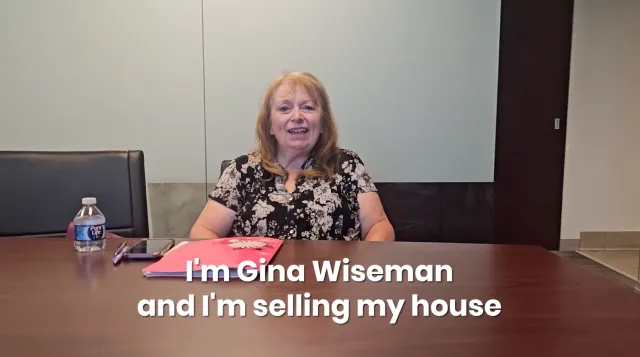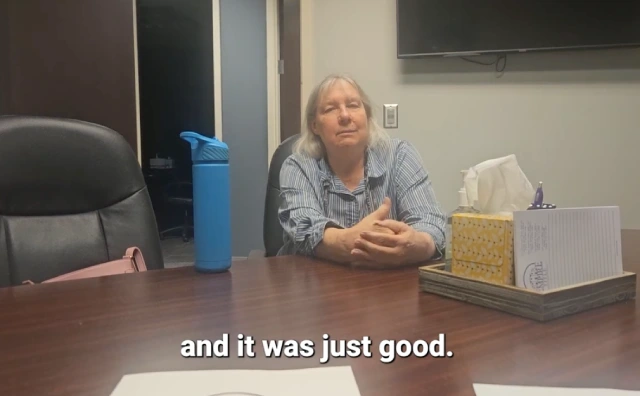Updated | Originally Posted:
Foreclosures can be a daunting and often misunderstood aspect of the real estate market. For homeowners and potential buyers in Colorado Springs, understanding the foreclosure process, its implications, and the available options can be crucial. Whether you’re facing foreclosure, looking to buy a foreclosed property, or simply want to stay informed, this blog post will provide you with a comprehensive overview. If you have any questions, feel free to call us at (719) 301-2644 so you can speak with someone who is experienced with the process and knows the local laws.

Ready to Stop Foreclosure? Sell To Us!
What is Foreclosure?
Foreclosure is the legal process through which a lender attempts to recover the balance of a loan from a borrower who has stopped making payments. This is typically done by forcing the sale of the asset used as collateral for the loan, usually a house. The process varies by state, and in Colorado, it involves several steps that can take several months to complete.
The Foreclosure Process in Colorado & How to Avoid Being Foreclosed On
- Missed Payments: The foreclosure process begins when a homeowner misses their mortgage payments. Lenders typically allow a grace period, but after 30 days, they may start charging late fees.
- Notice of Default: After 90 days of missed payments, the lender sends a Notice of Default (NOD), which officially begins the foreclosure process. This notice is also filed with the county recorder’s office.
- Cure Period: Colorado law provides a 110-day period known as the “cure period,” during which the homeowner can bring the mortgage current by paying the missed payments, late fees, and any other associated costs.
- Notice of Sale: If the homeowner does not cure the default within the 110-day period, the lender will file a Notice of Sale. This notice is published in a local newspaper and posted on the property, indicating the date of the foreclosure auction.
- Foreclosure Auction: The property is sold at a public auction to the highest bidder. If the property does not sell, it becomes Real Estate Owned (REO) by the lender.
- Eviction: After the auction, the new owner or the lender (if it did not sell) can begin eviction proceedings if the previous homeowner has not vacated the property.
Options for Homeowners Facing Foreclosure: “Can I Sell My Foreclosure House?”
- Loan Modification: Homeowners can work with their lender to modify the terms of their loan, potentially lowering monthly payments to make them more manageable.
- Short Sale: If the home is worth less than the outstanding mortgage, a homeowner can sell the property for less than what is owed with the lender’s approval. This can be a way to avoid foreclosure and its impact on credit scores.
- Deed in Lieu of Foreclosure: This option allows homeowners to voluntarily transfer ownership of the property to the lender to avoid foreclosure. While it still impacts credit, it is generally less severe than a foreclosure.
- Bankruptcy: Filing for bankruptcy can temporarily halt foreclosure proceedings and give homeowners time to reorganize their finances. However, it comes with its own set of consequences and should be considered carefully.

Buying a Foreclosed Property: We Buy Foreclosure Houses in Colorado Springs!
For buyers, foreclosed properties can offer significant discounts, but they come with risks and challenges. We buy foreclosure homes in Colorado Springs and some of them are in rough shape! But that’s ok… These properties are often sold “as-is,” meaning any repairs or issues are the buyer’s responsibility. It’s crucial to conduct thorough inspections and due diligence before making a purchase.
- Pre-Foreclosure: Properties in the early stages of foreclosure can sometimes be purchased directly from the homeowner. This can be a win-win, as the homeowner avoids foreclosure, and the buyer gets a good deal.
- Auction: Buying at auction can be risky as properties are usually sold without the chance for inspection. However, it can also be an opportunity to buy at a lower price.
- REO Properties: These properties are owned by the lender after failing to sell at auction. They are often listed with real estate agents and can be less risky than auction purchases, but still require due diligence.
How Can I Get in Front of the Foreclosure Process?
Foreclosures are a complex and often stressful part of the real estate landscape. For homeowners in Colorado Springs facing foreclosure, understanding the process and exploring all available options is crucial. For buyers, foreclosed properties can offer opportunities but come with their own set of challenges. If you’re navigating foreclosure, whether as a homeowner or buyer, it’s essential to seek advice from real estate professionals and legal experts to make informed decisions.
At Sell My House Today, we’re here to help you through every step of the process. If you’re facing foreclosure and need assistance, or if you’re interested in purchasing a foreclosed property, contact us today at (719) 301-2644 to learn more about how we can assist you. We are Colorado Springs foreclosure house buyers and we’d love to help!

How to Sell Your Foreclosure Home in Colorado Springs
If you’re facing foreclosure, you may feel overwhelmed and unsure of your options. Fortunately, selling your foreclosure home in Colorado Springs can help you avoid long-term financial consequences and regain control of your situation. Whether you’re in pre-foreclosure or nearing an auction date, acting quickly is essential. Many homeowners turn to professional foreclosure house buyers in Colorado Springs to ensure a fast, hassle-free sale and prevent further damage to their credit.
Benefits of Selling to Foreclosure House Buyers in Colorado Springs
One of the biggest advantages of working with foreclosure house buyers in Colorado Springs is the speed of the transaction. Unlike traditional home sales that can take months, experienced buyers who specialize in foreclosure homes can close in as little as a few days. They also purchase homes in as-is condition, meaning you don’t have to worry about repairs, inspections, or costly upgrades. This makes selling your foreclosure home a stress-free process while ensuring you walk away with cash in hand.
We Buy Foreclosure Homes in Colorado Springs – No Hidden Fees
If you’re concerned about hidden costs or realtor commissions, selling directly to investors who buy foreclosure homes in Colorado Springs is a great solution. Traditional real estate transactions often involve agent fees, closing costs, and additional expenses that eat into your profits. When you sell to a direct home buyer, there are no commissions, and the closing process is streamlined to benefit you, the homeowner. This makes it easier to move forward financially without additional stress.
Avoiding Foreclosure in Colorado Springs – Your Options
Many homeowners don’t realize that foreclosure is not the only option when struggling with mortgage payments. If you act early, you may be able to negotiate with your lender for a loan modification, short sale, or forbearance agreement. However, if these options aren’t feasible, selling your foreclosure home in Colorado Springs to a cash buyer is often the fastest and most reliable way to avoid foreclosure altogether. By doing so, you can protect your credit and financial future.
Why Work with Experienced Foreclosure Home Buyers in Colorado Springs?
Not all buyers understand the urgency and complexity of foreclosure situations. Experienced foreclosure house buyers in Colorado Springs specialize in working with distressed homeowners, offering tailored solutions to fit unique circumstances. They handle the entire process, from paperwork to closing, ensuring a smooth transaction. By choosing a reputable company that buys foreclosure homes, you can avoid unnecessary delays and get the financial relief you need.
Get a Cash Offer for Your Foreclosure Home Today
If you need to sell your foreclosure home in Colorado Springs fast, now is the time to take action. Delaying the decision can lead to additional financial consequences, including a foreclosure mark on your credit report for years. By working with trusted foreclosure house buyers, you can secure a fair cash offer and close quickly. Don’t wait until it’s too late—reach out today and explore your options for a stress-free home sale.



